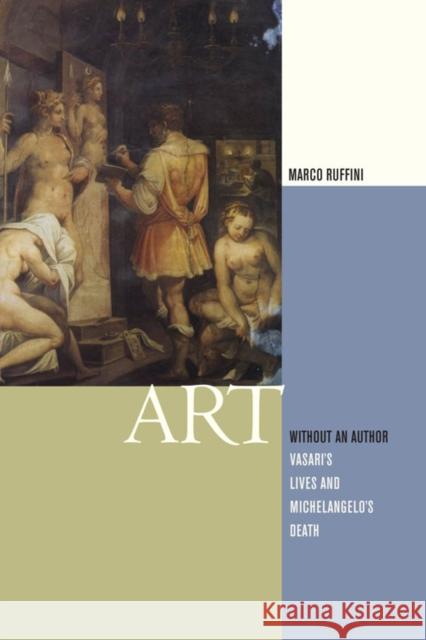Art Without an Author: Vasari's Lives and Michelangelo's Death » książka
Art Without an Author: Vasari's Lives and Michelangelo's Death
ISBN-13: 9780823234561 / Angielski / Miękka / 2011 / 276 str.
Art Without an Author: Vasari's Lives and Michelangelo's Death
ISBN-13: 9780823234561 / Angielski / Miękka / 2011 / 276 str.
(netto: 129,23 VAT: 5%)
Najniższa cena z 30 dni: 130,31
ok. 30 dni roboczych
Dostawa w 2026 r.
Darmowa dostawa!
Why is the history of art so often construed as a history of artists, when its alleged focus is art? This book responds to this question by examining Giorgio Vasari's Lives and the artist it features most centrally, Michelangelo. Printed in Florence in 1550 and republished in a substantially enlarged form in 1568, the Lives is a compendium of biographies of the most noteworthy artists, from the late Middle Ages to Vasari's time. Perhaps no other text has exerted such a formidable influence on the discipline of art history, shaping its historical and conceptual categories-principally as an effect of its biographical format and the biological model it follows, charting artistic development from birth through decline.More than any other artist in the Lives, Michelangelo exemplifies art as an expression of the individual. Yet at the same time, as this book aims to show, the Lives fashions Michelangelo as the founder of a new academic era in which art develops collectively as a discipline. Paradoxically, Vasari's celebration of Michelangelo mobilizes a conception of art as teachable and transmissible that is antithetical to Michelangelo's aesthetic ideals and unique style.Each of the five chapters of this book examines the notion of art without an author, whereby art is teachable and not the inimitable product of a genius, or a corporate rather than an individualistic venture. By tracing Vasari's transformation of Michelangelo from an artist into a figure who legitimates a new age in art, the book bridges a longstanding dichotomy in our understanding not only of Vasari but also of Renaissance culture and art.The claims Art Without an Author makes are integrally supported by art historical research and textual/philological analysis. By way of close study, this book reaches entirely new conclusions about Michelangelo, the production and significance of Vasari's Lives, and the role authorialvalues play in Italian Renaissance culture











